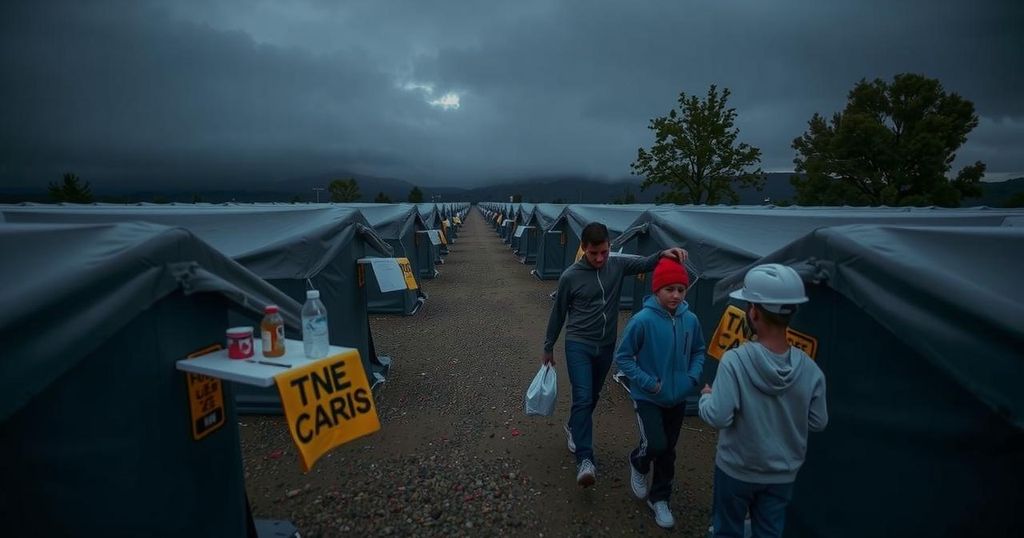Biden Administration Ends Humanitarian Parole Program for Migrants

The Biden administration has chosen not to extend a humanitarian parole program for Haitian, Venezuelan, Cuban, and Nicaraguan migrants, requiring them to either seek alternative legal status, leave the U.S., or face deportation. This decision affects around 214,000 individuals and coincides with heightened political scrutiny of immigration policies ahead of the 2024 presidential election.
The Biden administration has decided not to extend a program that allowed migrants from Venezuela, Haiti, Cuba, and Nicaragua to enter the United States via sponsorship if they arrived by plane. This program, initiated in 2022, was aimed at providing a legal pathway for migrants amidst rising illegal crossings at the U.S.-Mexico border. It later expanded to include other nationalities due to increasing numbers attempting to cross the border illegally. As a result of this decision, approximately 214,000 Haitians, 117,000 Venezuelans, 111,000 Cubans, and 96,000 Nicaraguans who benefited from this humanitarian parole will now need to apply for alternative legal status, leave the country, or risk deportation.
The humanitarian parole program was launched to address the increasing number of migrants arriving illegally at the southern U.S. border. It provided temporary residency for migrants from specific Caribbean and Latin American nations as part of a broader strategy to manage immigration while enhancing border security. Recent evaluations indicated the program’s critical role in helping migrants escape difficult circumstances, including political unrest and natural disasters in their home countries. The end of this program coincides with intensified political discourse surrounding immigration policy, particularly in the lead-up to the 2024 presidential election.
In conclusion, the Biden administration’s decision to not extend the two-year humanitarian parole program for migrants from Venezuela, Haiti, Cuba, and Nicaragua signals a shift in immigration policy that could have significant repercussions for these communities in South Florida and beyond. As the government faces mounting pressures related to immigration, affected individuals must explore alternative legal pathways while the administration seeks to balance enforcement with humanitarian needs in an increasingly complex landscape.
Original Source: www.wlrn.org








